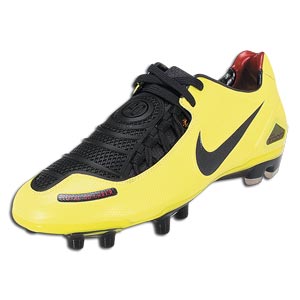TECHNOLOGY is not normally associated with an active lifestyle. Whether it is kids slumped in front of the telly or frantically tapping at the games console controller, the image conjured up tends to be one of slovenliness rather than healthy activity.
In this age of rising obesity, sedentary activities are viewed as part of the problem. So it comes as something of a surprise to learn that one innovative Sheffield firm views technology as a key part of the cure to the country’s size problem.
Martin Spence is the founder of Xoolon, an online sports academy based in the national city of sport, which aims to harness new technologies to get kids active again.
“Technology and physical activity don’t need to be mutually exclusive,” he said. “We can provide a simple and fun way to record and share activity, which really gets kids involved in the process.”
Xoolon has developed and released an app for the iPhone as the latest part of its project to improve the health of the nation’s youth.
Martin feels that the only way to engage young people in a healthier way of life is to tap into things that they are interested in and use on a day-to-day basis. He has concluded that the incredible popularity of social networking sites and prevalence of mobile phones provides the best means to get kids’ attention.
The new app allows kids to measure and record physical activity and instantly upload and share their results with others on Facebook, Twitter and e-mail via their mobile phone.
They can do this in their own time, or after a training session or PE lesson.
“Kids are generally forbidden from using technology at school, unless it’s in a strictly controlled environment,” said Martin.
Naturally, this makes letting them loose on mobiles and the internet a great way to capture the attention of these ‘technology natives’.
“They love the chance to have a play around, and they’re naturals when it comes to using the technology. They’re online and uploading results in no time" said Martin.
“Millions of people interact with each other via social networking sites, like Facebook. They share pretty much anything on there. All you need is internet access, and the fastest way to get people online is through mobile phones.”
The app is designed to complement the Xoolon website, which already allows schools and sports clubs to upload and track their pupil’s sporting statistics and develop individually-tailored sports regimes.
For Martin, the crucial elements of Xoolon are that it makes physical activity a shared experience, introduces a competitive element and associates it with something cutting-edge. This means that kids enjoy using it and have an incentive to carry on.
No matter how attractive the product, though, the scale of the problem makes tackling it a huge challenge.
According to Department of Health figures, child obesity is at its highest ever level and rising, as are obesity related health problems. Meanwhile, levels of physical activity are dismally low – a sure-fire recipe for a public health disaster.
Martin is unequivocal about the problem.
“Obesity used to be a social stigma, but it’s becoming acceptable because it’s normal,” he said.
“Many kids are doing less than an hour of physical activity a week - and that’s including walking.
“The level of fitness of many young people is extremely low. Inactivity has reached such a high level that obesity is the natural outcome.”
The government, stunned into action perhaps by the looming economic cost of rising obesity, has launched its own Change4Life campaign aimed at altering people’s lifestyle habits.
Its tendency to present things in terms of simple ‘do’s’ and ‘don’ts’ is not something which Martin feels will be effective in the long-term.
“This is just an attempt at a quick fix, a short term measure. We are decades from changing habits – quick fixes are no good,” he said.
“We need an entire culture change, where physical activity is part and parcel of kids’ everyday lives and they are motivated to look after themselves.”
If Xoolon catches on, maybe technology, rather than being viewed as part of the obesity problem, can be the key to realising this vision.



